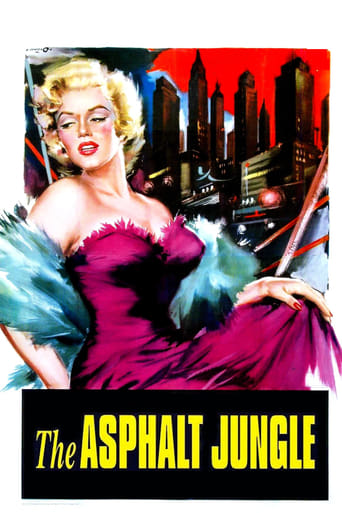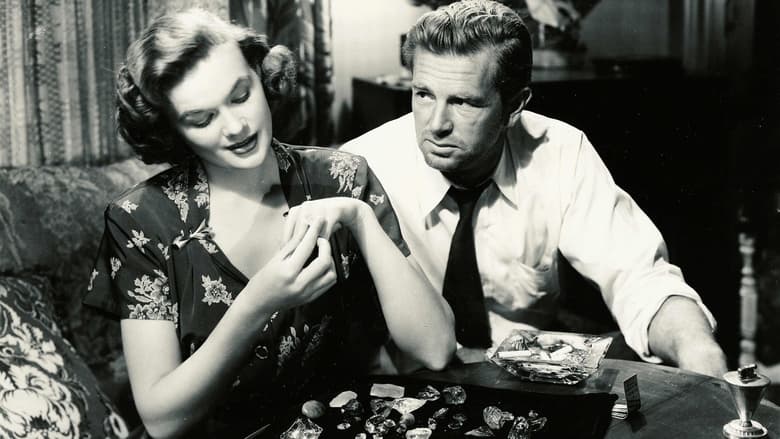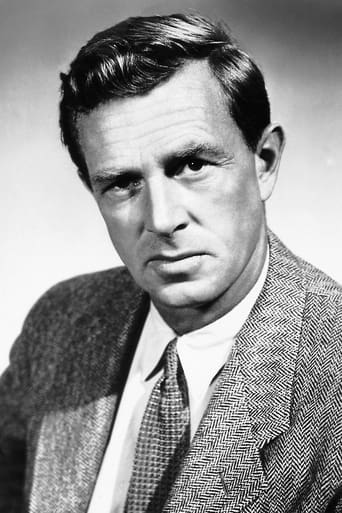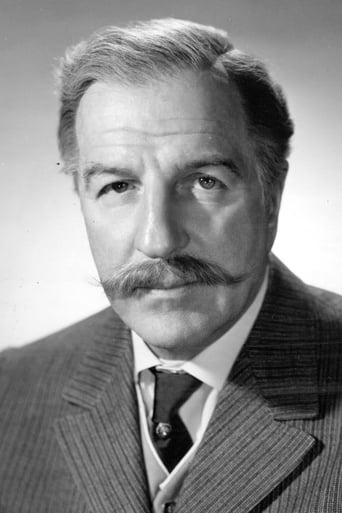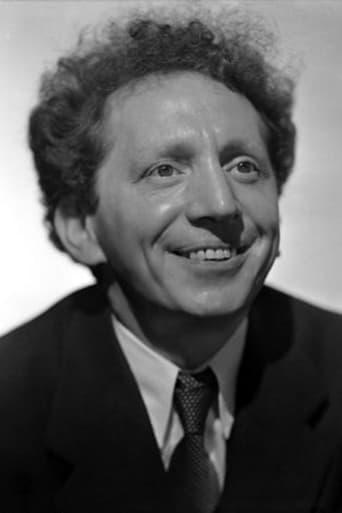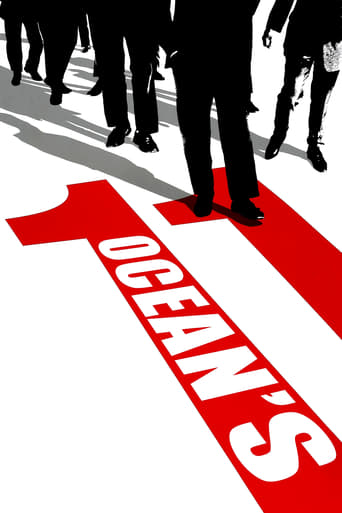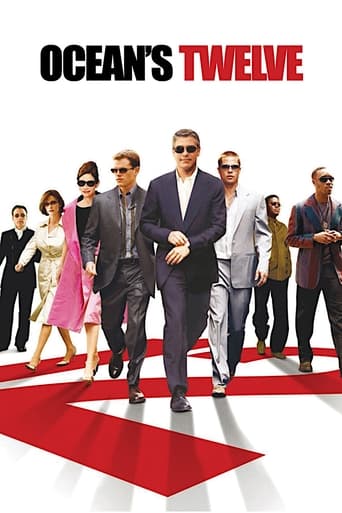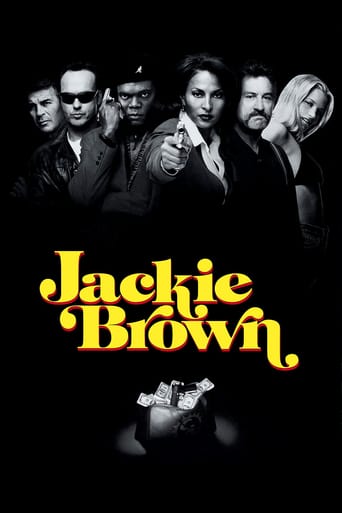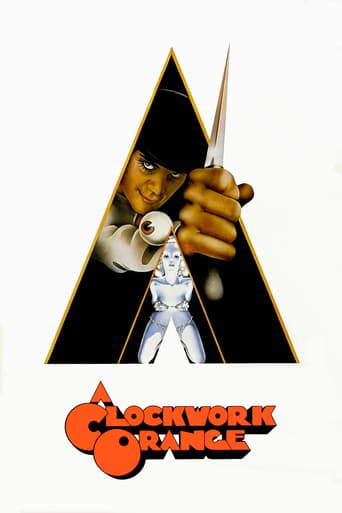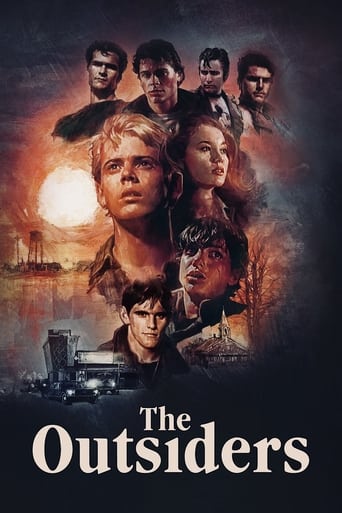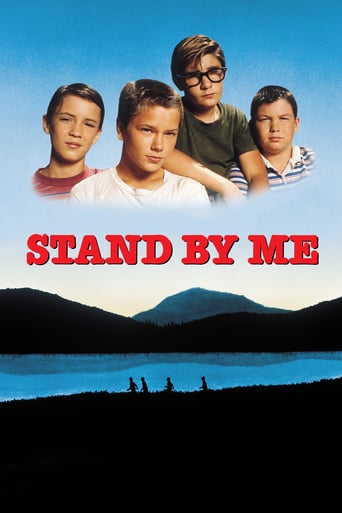The Asphalt Jungle (1950)
Recently paroled from prison, legendary burglar "Doc" Riedenschneider, with funding from Alonzo Emmerich, a crooked lawyer, gathers a small group of veteran criminals together in the Midwest for a big jewel heist.
Watch Trailer
Cast


Similar titles
Reviews
The Age of Commercialism
Simply Perfect
Fanciful, disturbing, and wildly original, it announces the arrival of a fresh, bold voice in American cinema.
Ok... Let's be honest. It cannot be the best movie but is quite enjoyable. The movie has the potential to develop a great plot for future movies
Sorry, but this is as good as noir gets. Gritty, beautifully shot on location. Crisp and dead level-written dialogue. Not a dead spot in the fast moving story. And Huston's direction underlines this classic.
This is a caper film and one of the best examples of film noir. The black and white photography is stylish and atmospheric, the music is dramatic and sensitive to the visuals, the acting is terrific.Of course it helps to have a cast that includes Sterling Hayden, Louis Calhern, Jean Hagen, James Whitmore, Sam Jaffe and Marilyn Monroe. Their characters populate the city's "jungle"--the dark underside where each denizen has his vice. The film suggests that its inhabitants are infected with an urban disease, being too far from the land. This is the antithesis of "Spencer's Mountain", for example, where goodness wins out, because their lives are grounded in the soil."The Asphalt Jungle" is one of the best examples of film noir and has significantly influenced many films that followed. Like "The Maltese Falcon", it explores the dreams of those who are always looking for the big score. The final scene is nearly perfect in its symbolism and execution. This is a film that can be watched many times and enjoyed for its literate writing.
Lately, I've been watching so many mediocre and, yes, really bad films that I needed to sit down and write out a short list of the essential elements in the making of a good movie. Even after many viewings, this movie actually improves with each look. No, they don't make them like this anymore. Here is the brief list that I composed:1. Good writing: In this case, the screenplay by Ben Maddow and John Huston, the director, provides outstanding dialogue that is both lean and powerful. Almost every word has a purpose, revealing important information about each character or explaining the background as well as the action that is to follow.2. Careful casting and a successful delivery by very talented cast: Without exception, every member of this cast has an important contribution to the overall success of the product. As a viewer, I sense that they are energized by each other as a team, in addition to their positive interaction with excellent writing and direction.3. Direction: Having written the script so flawlessly with Maddow, John Huston gets his second gold star here as director. He was responsible for bringing together the various components, including all of the different people mentioned in the credits, in order to create one seamless product. The technical skills behind the effective use of the camera and the lighting should never be taken for granted.This is by no means the jungle of Tarzan and Jane. This is a jungle exclusively inhabited by flawed human beings who are doomed to self-destruction from the very start. Although the extremely bleak opening scenes are of the City of Cincinnati, I did not hear the name of this city mentioned even once during the film. Perhaps the director believed that it was unfair to single out one particular American city because the locale could have been any number of cities in the US at the time. I never once considered the many unsavory characters and shabby neighborhoods depicted here to be a reflection of any one city, but it's nevertheless an interesting bit of movie trivia to me. The fact that Doc asks the taxi driver to drive him to Cleveland is another hint at the film's locale. The fuzzy locale in this instance reminded me that Kazan never revealed that "On the Waterfront" was shot in Hudson County, NJ rather than in New York City, as many still believe. You can't see Manhattan across the Hudson from Manhattan, you know, but that is the subject for another (glowing) review.As to the superb acting in this film, who stands above the rest? My vote goes to Louis Calhern as Emmerich, the sleazy lawyer who is bankrupt not only financially but morally and spiritually as well. As disagreeable as this character is, Calhern's performance allows the viewer to experience up close the humiliation of a man who was once regarded as "respectable" by his community. His own adoring, bed-ridden wife, well played by Dorothy Tree, seems to be in total denial of the true extent of his corruption. To me, Calhern conveys so well a sense of ruin within a man once highly esteemed but suddenly reduced to the lowest depth of utter disgrace.The acting accolades could go on and on, including James Whitmore as the disabled getaway man who is simmering internally with violent rage, Jean Hagen as Doll, the devoted but very lonely girlfriend of Dix (Sterling Hayden), and Mark Lawrence as Cobby, the small-time criminal weasel who finds himself way over his head, possibly for the first time in his slimy life. No review should omit the work of Sterling Hayden, the "hick hooligan" with the exploding inner rage of a man who despises his fate, having been thrust into a hostile, urban world that he never wanted but in which he nevertheless must struggle to survive by means of criminal activity, the only way that he knows. Then there is Sam Jaffe as Doc, the sophisticated, highly educated mastermind of the caper who is very smart but not smart enough to have waited to execute his plan at a time when he is no longer a recently released, high profile prisoner. "Oh, the girls in Mexico!" he exclaims to his new partners in crime. Only because of the overall sense of doom and gloom do we sense early that he will never make it to Mexico and must instead settle for the fleeting, seductive 1950 jitterbug dance of a small town Ohio teenager in front of a roadside jukebox. "Oh, the girls of Westerville!" would be more like it for Doc. More sadness and failure follows for yet another doomed, pathetic inhabitant of the human jungle. And what about Marilyn Monroe, who literally lights up the screen, albeit briefly, in an otherwise dark, drab, and depressing world? Don't think for a moment that she doesn't provide the soothing relief that Huston deliberately sought for his audience, regardless of their gender. God bless Marilyn and watch over her forever.Other reviewers have mentioned the absence of music, especially during the caper itself. How else would we hear the early sounds of the police sirens in the distance that so ominously announce the approaching outcome that would impact so many lives, both the guilty and the innocent? The most important music of the film surges at the end when Dix, the urban misfit, finally comes home to Kentucky, surrounded by the beautiful horses of his dreams, in a serene, pastoral scene that deliberately contrasts the ugliness and alienation of the asphalt jungle that he so despised.
One quick look at director John Huston's career as a director would enable viewers to ascertain that "The Asphalt Jungle" was a minor work in his illustriously long cinematographic career.He is best remembered for two great successes with superstar Humphrey Bogart namely 'The Maltese Falcon' and 'The treasure of the Sierra Madre'.By virtue of being one of the most important American heist film, The Asphalt Jungle is one film which can neither be ignored nor neglected by both critics and viewers whenever one speaks about its association with John Huston.This was also the film with which legendary American actress Marilyn Monroe was associated.She plays an interesting albeit minor role as a young lady who lies in order to save her married lover from an impending prison sentence.'The Asphalt Jungle' provides simple viewing pleasure to its audiences as everything has been told in a prosaic manner.Its actors have done justice to their roles but it becomes an ordinary film as there is no scope for any intrigue. Lastly, "The Asphalt Jungle" may not be voted as the best heist film in the world but it can surely be considered best heist film ever produced by a Hollywood studio.There are not many who would protest when somebody reveals that Jules Dassin's Rififi can rightly be called one of the best heist film ever made in the world.

